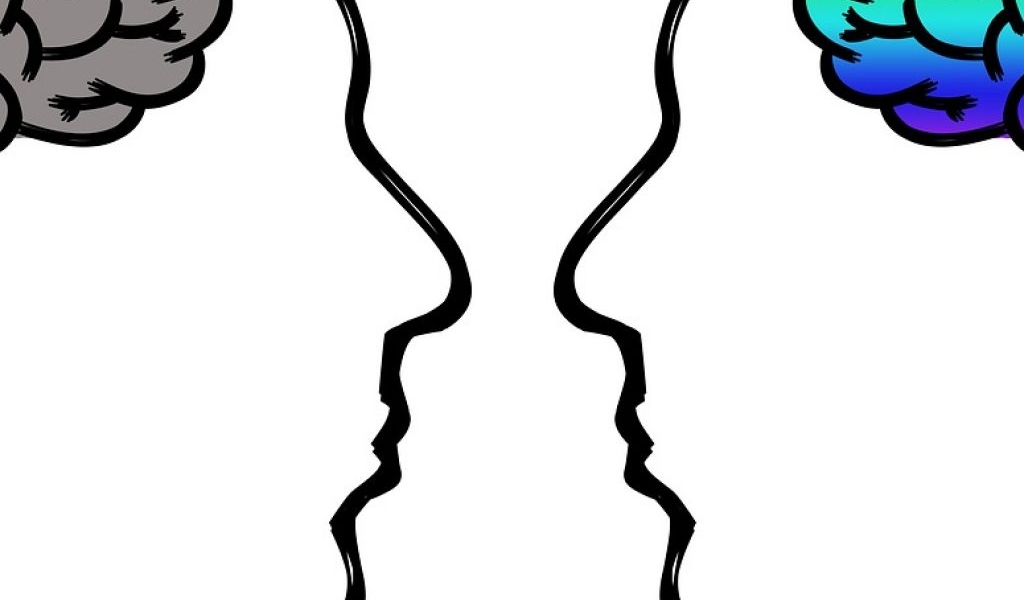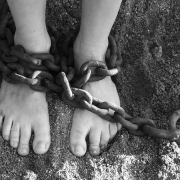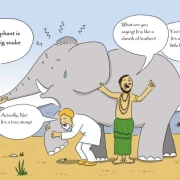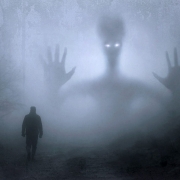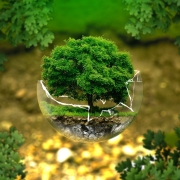
Essentially, there are two contrasting frames of mind through which we perceive ourselves, our lives, environment, and each other. Leading edge thinkers in the field of human consciousness are encouraging us to do two things:
- Become familiar with how your ego functions. Notice that it orients your perceptions so that you are focusing outward comparing and contrasting yourself with others and reacting with either cooperation or rebellion to external authorities such as parents and culture.
- Develop the ability to be alert and aware in the present moment. Practice coming to each new moment with a consciousness of neutrality (without preconceived notions of right and wrong). Tune into your own deepest truth and meet your experiences through that lens so you are living a more authentic life from the inside/out.
Think of these two states of mind existing on a continuum. At any given moment, you are functioning somewhere along that range. What we typically refer to as “awakening” or “becoming more enlightened” involves moving along this scale towards a greater ability to be fully present.
However, this does not require that we annihilate our ego. Rather, we learn to transcend its limitations. Both states of consciousness are always present. The ego strengthens our sense of self as a separate and unique being. Our process of individuation from infancy to adulthood relies on the ego’s reinforcement. However, there is a point at which we either fall into the trap of thinking we are only our ego/personality or we begin to suspect and explore our suspicion that there is more going on here – another dimension of being beyond our physical senses and what we perceive through the ego. This typically is motivated by a yearning for greater authenticity – a desire to nourish a truer and deeper part of the self than what is being perceived through the ego.
Those who are working to raise their state of consciousness are increasing their ability to be fully present and decreasing their inclination to act primarily out of their ego. Exploring and strengthening this ability to perceive life through this other state of consciousness is often referred to as awakening, enlightenment, or reaching a higher state of consciousness. It is a kind of self-realization and empowerment – what I call in my work, mastering the art of being you. It is characterized by a kind of alert awareness in the present moment that enables us to experience more dimensions of the human experience and to master the art of being who we are and living according to what deeply matters to us. Alternatively, those who do not pursue this kind of awakening tend to remain stuck in a repetitive, self-fulfilling prophecy of their ego’s perceptions and desires.
The following chart provides a comparison of these two states of mind.
Being of Two Minds
| Ego Mind | Fully-Present Awareness |
| The Immature Human Being | The Awakened Human Being |
| Surviving | Thriving |
| False Self/Personality | True Self/Essence |
| Dualistic – Either/Or Thinking | Co-Existence – Both/And |
| Right/Wrong Polarized Thinking | Neutrality, Mental Spaciousness |
| Separation | Interconnected, Oneness |
| Outer Locus of Focus – Outside/In | Inner Locus of Focus – Inside/Out |
| Blaming and Judging | Understanding, Empathy |
| Past/Future Oriented | Alert in the Present Moment |
| Self-Serving | Concerned for Highest Good of All |
| Naming, Comparing, Competing | Experiencing in a Neutral State |
| Doing, Trying, Controlling, Striving, Alert | Simply Being, Aware, Receptive |
| Accumulating Information | Tapping into Wisdom |
| Focused on Thoughts, Feelings, Beliefs | Guided by Heartfelt Inner Resonance |
*Our attitude is the bridge between these two states of mind. When we change our attitude or perceptual focus, we change our experience.
Our egos are focused outside of ourselves and are all about preserving our sense of personal identity in this world – not only in and of ourselves, but in comparison and relationship to others. We perceive and register everything in terms of polarized thinking – I like this/I don’t like that; self/other; right/wrong; desirable/to be avoided. This process of categorizing our experiences relative to what we have known in the past or what we are seeking to create in the future directs us according to the perceived relative merit of the experience or person being encountered. We grade everything and compare our experiences to our expectations and desires. Our sense of well-being is conditional and fluctuates depending on what is happening in our outer lives. So, we go about life trying to control what comes our way and striving to manifest more happiness and less unhappiness.
In contrast, when we are being fully present we are immersed in the experience of the present moment itself – suspending judgment and categorization. We do not filter out or avoid “undesirable” experiences and individuals, but rather learn how to be in their presence without losing our sense of well-being. We are not trying to sanitize our lives of all unpleasant experiences, but rather building the inner strength and wisdom to effectively encounter all of life.
We live in a society that seduces us to seek validation and fulfillment outside ourselves. It does so without first nurturing us in getting to know ourselves. Most of us are not guided in developing the inner confidence, discernment, resilience, and inner infrastructure needed to effectively maintain our well-being, while navigating life’s ordinariness and challenging transitions. As a result, we often lose track of ourselves and experience all kinds of unnecessary frustrations, disappointments, sadness, self-doubt, and hopelessness that could have been avoided if we were only better acquainted with ourselves, and knew how to thrive in our own skin through all that life brings our way.
It is important to learn how to distinguish between what we think we know through the filter of our ego and what we know to be true from a deeper place within us. This profound kind of knowing usually shows up effortlessly. For me, there is typically an inner calm that comes over me and a resonance within that recognizes truth when I encounter it. It feels like tapping into wisdom rather than learning information.

